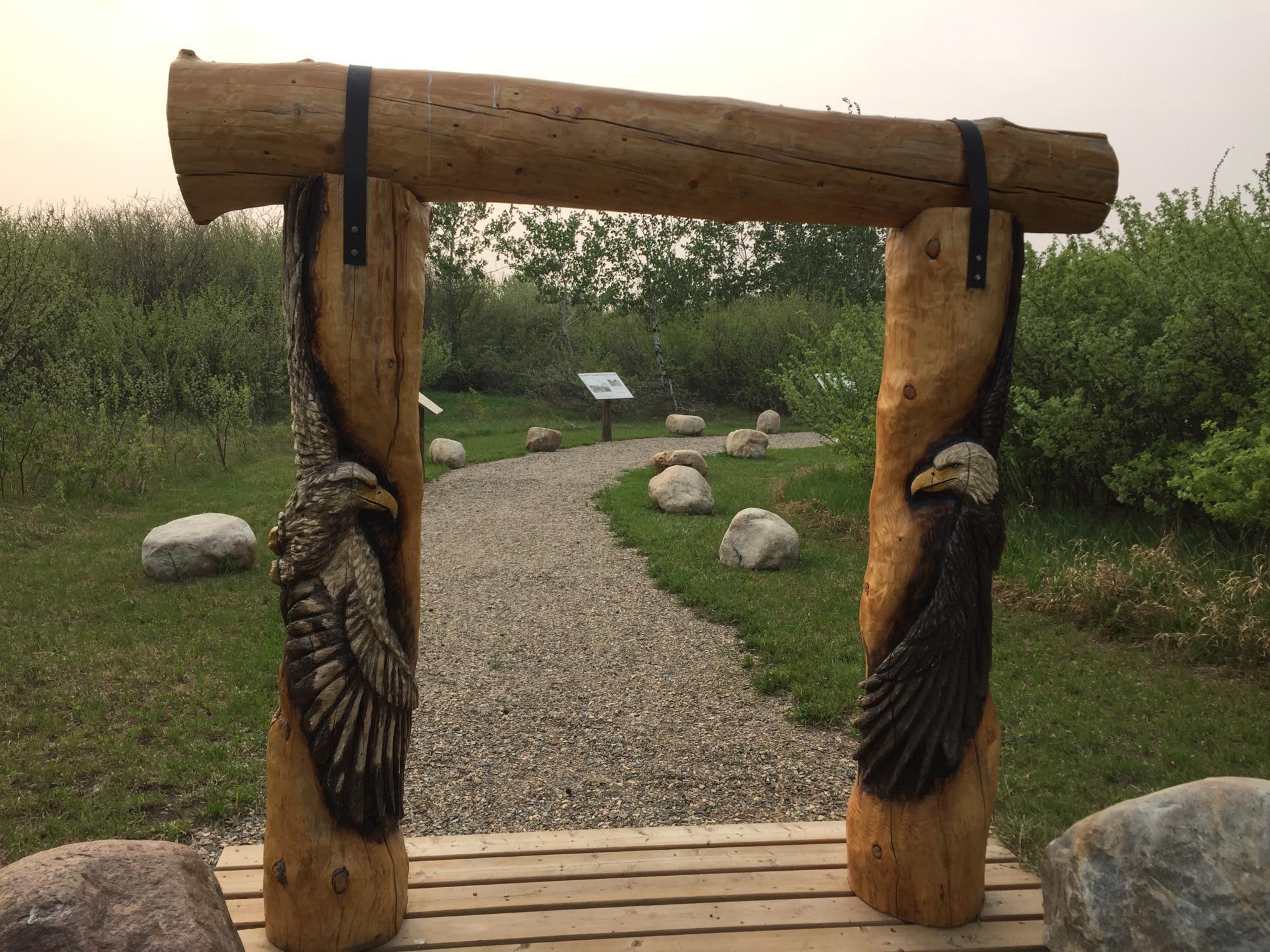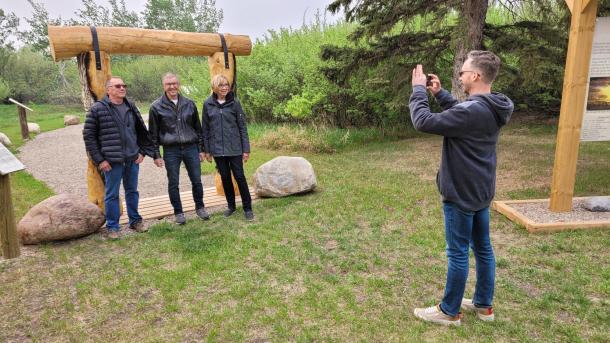More than a song: Saskatchewan's path to reconciliation

In Québec, when one says “Saskatchewan”, the first thing that comes to mind is the famous song of the same name by the humoristic punk rock band Les Trois Accords. But aside from this musical reference, people here know little about the least populated province of the Prairies. Barely more educated than most Québécois on the topic, I embarked on an MCC learning tour to visit the MCC staff in Saskatoon and their Indigenous Neighbours program. With MCC Saskatchewan Indigenous Neighbour coordinator Randy Klassen and co-director of the Peace and Justice Office Ruth Plett, I visited partners, attended meetings of non-profit organizations committed to reconciliation with the First Nations, took part in a pipe ceremony, and visited a Cree reserve expert in forest horticulture.
But one of the most amazing encounters for me was to meet with Mennonite and Lutheran landowners who chose to engage in a dialogue with Indigenous people who claimed the settlers’ farms as their rightful reserve land –which used to be called Reserve 107.
Amid many displeased reactions in the community, a few of them found in their hearts to accept an invitation to a meet and greet and a potluck with Indigenous leaders. Acknowledging that there were yet no solutions to offer, the group decided they would first open a relationship and recognize the history of land concession in the Prairies before trying to settle the dispute. I was amazed at this unusual capacity to “cool off” and peacefully engage in relationship building…even with people who –for good reasons— appear to challenge our worldview.

I also got a clearer sense of how different the experience can be, as far as the history of the relationship with First Nations is concerned, among different provinces. In that case, between the one I know best, in Quebec, and that of the Prairies. It helped me understand how the national conversation is in large part driven by the intense and recent character of the dispossession of Indigenous communities there. Québec was mostly populated in the 17th and 18th, before the Canadian confederation, the Indian Act, and the Residential school policy (which was carried out in Québec as well), and in a less drastic and systematic way than in the Prairies. Because of that, much of the language around reconciliation (for instance, the use of the term “settler” in referring to white folks) sounds heavy, guilt-ridden, or even inaccurate to many Québécois.
But more than guilt or self-flogging, in Saskatchewan I saw a very diverse movement filled with Indigenous people, white settlers, and newcomers determined to address racism and to achieve reconciliation in peace. I saw a true social vision for the future.
A good example of that was when I participated in a meeting that brought together 115 Saskatoon organizations all committed to reconciliation with Indigenous people. Saskatoon is the second-most populous city in Saskatchewan, but it’s still a very modest one: 273 000 inhabitants, half the population of Québec City (which is often called a mere “village” by Montreal people!). How then to explain such an extended and influential movement committed to reconciliation with Indigenous people in so modest a city? The Saskatchewan context is the key to understanding this kind of energy and devotion to peace. The larger Canadian issue of Indigenous overrepresentation in prisons is well documented: in 2021, more than 48% of women incarcerated in Canada were Indigenous. In Saskatchewan, the proportion reaches the number of 90% (about 75% men and women together). It is so absurdly disproportionate that it signals an abnormal social problem. Facing such gigantic issues, people there started to respond by concentrating on its root causes (the legacy of colonialism and Indigenous dispossession) instead of contenting themselves with addressing the consequences (with criminal punishment).
Even more surprising from a Québec perspective, religious groups and especially Christian churches are well represented in this movement. Above all, I could sense joy and excitement that, despite the severity of the current situation, things are starting to move towards more justice and more peace. From the ground up to political circles, reconciliation is happening. And it is up to us to do our part here as well.

